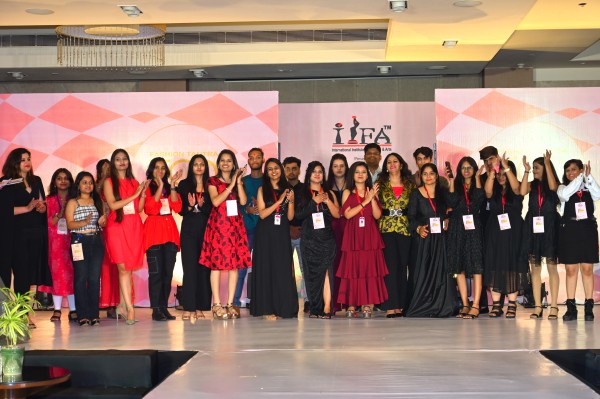In recent years, the global fashion landscape has witnessed a remarkable surge in the influence and prominence of Indian fashion designers. With their unique blend of tradition, innovation, and flair, these designers have captivated audiences around the world, earning accolades and recognition on prestigious runways and red carpets. From reinterpreting traditional Indian attire to pushing the boundaries of haute couture, contemporary Indian fashion designers are redefining the narrative of Indian fashion on the global stage.
Breaking Stereotypes:
Gone are the days when Indian fashion was confined to clichés of exoticism and Bollywood glamour. Today, contemporary Indian designers are challenging stereotypes and reshaping perceptions with their bold, avant-garde creations. Whether it's the minimalist aesthetics of Rahul Mishra or the eclectic designs of Masaba Gupta, Indian fashion is undergoing a paradigm shift, embracing diversity, inclusivity, and individuality.
Innovative Fusion:
One of the hallmarks of contemporary Indian fashion is its seamless fusion of traditional craftsmanship with modern sensibilities. Designers like Sabyasachi Mukherjee and Tarun Tahiliani have mastered the art of blending age-old techniques with contemporary silhouettes, creating garments that resonate with a global audience. By infusing traditional Indian textiles, embroidery, and motifs into their designs, these designers are celebrating India's rich cultural heritage while appealing to the tastes of a cosmopolitan clientele.
Global Recognition:
The rise of contemporary Indian fashion designers on the global stage has not gone unnoticed. From the prestigious halls of Paris Fashion Week to the glamorous red carpets of Hollywood, Indian designers are making their mark on some of the world's most coveted platforms. Celebrities and fashion icons alike are embracing Indian designers for their distinctive aesthetic and craftsmanship, further amplifying their international appeal. Designers like Manish Malhotra and Anita Dongre have dressed Hollywood stars and royalty, solidifying India's position as a global fashion destination.
Innovation in Sustainability:
In addition to pushing the boundaries of design, contemporary Indian fashion designers are also leading the charge in sustainability and ethical fashion practices. With growing awareness of environmental and social issues, designers are increasingly turning to eco-friendly materials, ethical production methods, and fair trade practices. Labels like Pero and Abraham & Thakore are championing sustainable fashion, proving that style and sustainability can go hand in hand. By prioritizing ethical principles and conscious consumption, Indian designers are not only making a fashion statement but also driving positive change in the industry.
Empowering Artisans and Communities:
Beyond the glitz and glamour of the runway, contemporary Indian fashion designers are also playing a pivotal role in empowering artisan communities and preserving traditional craftsmanship. By collaborating with skilled artisans and reviving age-old techniques, designers are not only preserving cultural heritage but also providing sustainable livelihoods to craftsmen and weavers. Initiatives like the Fashion Design Council of India's (FDCI) Crafts Council are fostering collaborations between designers and artisans, ensuring that traditional skills are passed down to future generations. Through these partnerships, Indian designers are creating opportunities for economic empowerment and social upliftment in rural communities across the country.
Conclusion:
The emergence of contemporary Indian fashion designers on the global scene marks a significant milestone in the evolution of Indian fashion. With their innovative designs, commitment to sustainability, and efforts to empower artisan communities, these designers are not only reshaping perceptions of Indian fashion but also making a meaningful impact on the industry. As they continue to push boundaries and break barriers, contemporary Indian designers are poised to leave an indelible mark on the global fashion landscape for years to come.



















Your Message